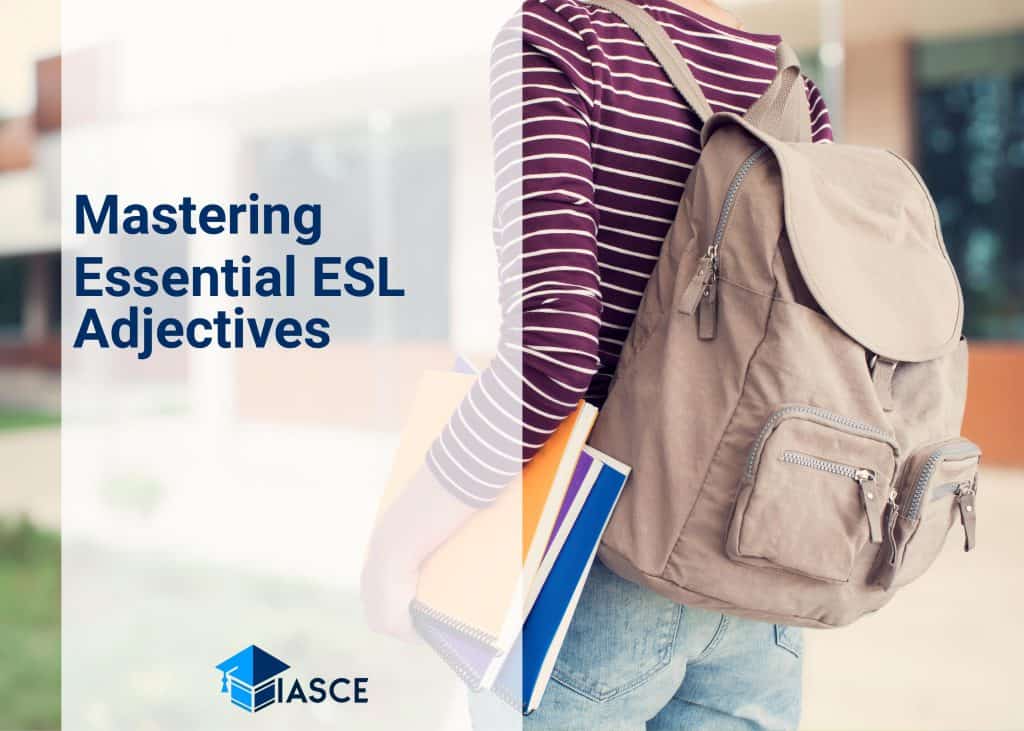Mastering English as a Second Language (ESL) can feel like scaling a mountain, especially when it comes to grasping adjectives and their implications. Adjectives are the magic brushes that paint vivid pictures in our conversations and writings. They’re the spices that add flavor to our language soup. Understanding and using them properly is crucial for successful communication.
In this post, I’ll shed light on 15 essential ESL adjectives that every English learner should have in their arsenal. We’ll delve into how these adjectives function, explore examples of their usage, and discuss the nuances they carry within different contexts. So buckle up! Your journey towards mastering these crucial English elements starts right here.
Understanding the Power of Adjectives in ESL
When I first started teaching English as a Second Language (ESL), I quickly realized how much power adjectives hold. They’re the unsung heroes of language, infusing every sentence with color, emotion, or precise detail.
Let’s take a closer look at these workhorses of language. Adjectives modify nouns and pronouns, providing additional information about their qualities or characteristics. In essence, they add depth to our communication by painting vivid images in the reader’s mind.
Here’s an example:
|
Without Adjective |
With Adjective |
|---|---|
|
“She has a dog.” |
“She has a small, energetic dog.” |
See how those two little words – small and energetic – changed your image of the dog? That’s the magic of adjectives!
Now let’s dive into 15 essential ESL adjectives that’ll give you command over nuanced meanings within English conversations.
-
Happy
-
Sad
-
Angry
-
Excited
-
Tired
-
Hungry
-
Thirsty
-
Big
-
Small
-
Fast
-
Slow
12 Hot 13 Cold 14 Beautiful 15 Ugly
Each adjective holds its own unique implications and nuances, understanding which can vastly improve your grasp on English conversation.
For instance, using “excited” instead of “happy” communicates not just happiness but also anticipation for something yet to come.
In sum, exploring these adjectives will help you master subtle implications in English language usage.
Breaking Down the 15 Essential ESL Adjectives
Let’s dive into each of these essential ESL adjectives, how they’re used, and some examples to demonstrate their impact. The beauty of language is that it’s vibrant and diverse, just like we are.
-
Happy: It’s a fundamental adjective describing a state of joy or satisfaction. Example: “I’m happy to meet you.”
-
Sad: This word expresses sorrow or unhappiness. Example: “She was sad after losing her job.”
-
Big: Used to describe something large in size or amount. Example: “New York is a big city.”
-
Small: The opposite of big; it refers to things that are not large in size or quantity. Example: “My apartment is small.”
-
Fast: This adjective refers to speediness or quickness, whether it’s about people, animals, cars, etc.
-
Slow: As the counterpart of fast, slow describes lack of speed.
-
Old: It denotes anything that has existed for a long time.
-
Young: Young signifies something or someone not old; fresh or early in life.
-
Hot/Cold – These two usually describe temperature but can also refer to popularity (hot) and indifference (cold).
10-14: We have sensory adjectives such as loud/quiet (sound), hard/soft (touch), and bright/dark (sight).
15: Finally there’s “tasty,” an adjective often used when talking about food.
|
Adjective |
Sentence |
|---|---|
|
Happy |
I’m happy to meet you |
|
Sad |
She was sad after losing her job |
|
Big |
New York is a big city |
|
Small |
My apartment is small |
When learning English as a second language, mastering these basic yet potent adjectives can elevate your communication skills drastically!
Conclusion: Mastering English Language Implications through ESL Adjectives
So, we’ve come to the end of our journey exploring essential ESL Adjectives. It’s been a deep dive into how mastering these adjectives can enhance your understanding and usage of the English language.
As someone who’s navigated the intricate waters of English grammar, I can’t emphasize enough how crucial it is to grasp these adjectives. They’re not just words; they are keys that unlock nuanced meanings and implications in conversations and writings.
Let’s take a quick look at what we’ve learned:
-
We started with simple yet powerful adjectives like ‘beautiful’, ‘happy’, and ‘sad’. These common adjectives form the backbone of everyday conversation.
-
Then, we ventured into more complex territory with adjectives like ‘meticulous’ or ‘exquisite’. The use of these words adds depth and detail to your communication.
-
Finally, we covered a handful of comparative and superlative forms. Their mastery paves the way for expressing degrees or levels in English.
Remember, learning is an ongoing process. While this list covers 15 essential ESL adjectives, there are many more out there waiting for you to discover them. Keep practicing, keep expanding your vocabulary, and you’ll find your command over English improving day by day.
Thanks for joining me on this linguistic adventure! Here’s hoping that this guide has helped illuminate the path towards mastering English language implications via ESL Adjectives. Stay curious, keep learning!

